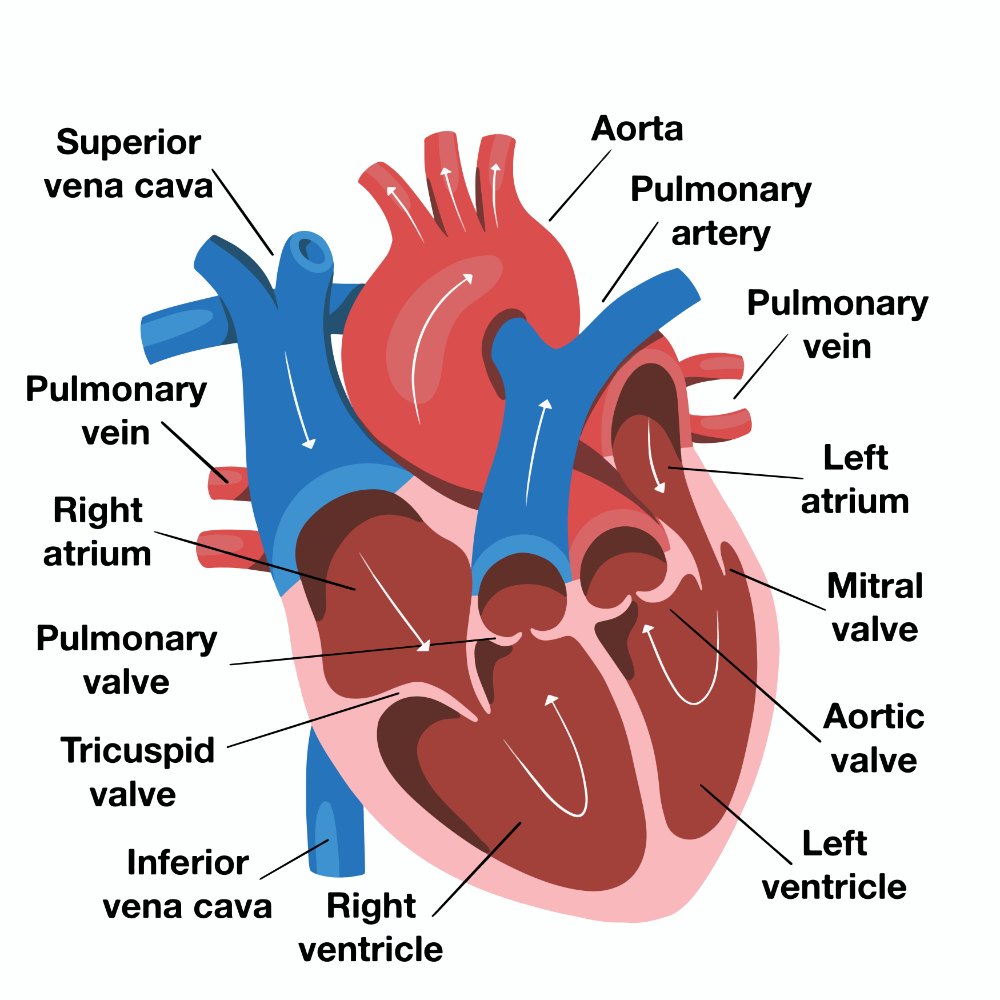
Valvular heart disease is a condition that affects the function of one or more of the heart’s four valves: the aortic, mitral, tricuspid, and pulmonary valves. These valves help regulate blood flow through the heart and ensure it moves in the correct direction.
When a valve fails to function properly, it can lead to serious cardiovascular complications, including heart failure.
At Sydnor Cardiovascular Center, our experienced cardiologist, Dr. Lilian Ahiable, specializes in diagnosing and treating valvular heart disease using advanced imaging techniques and cardiac procedures. Our team provides comprehensive and personalized care to optimize your heart health.

The heart has four chambers—two at the top (atria) and two at the bottom (ventricles). As blood moves through the heart, it passes through a valve at the exit of each chamber. These valves work like one-way doors, allowing blood to flow in the right direction and preventing it from going backward.
The four heart valves include:
Valvular heart disease occurs when one or more heart valves become damaged or diseased, impairing their ability to open and close properly. If left untreated, heart valve disease can restrict blood flow, forcing the heart to work harder.
Over time, this can lead to serious complications, such as:
Valvular heart disease can affect one or multiple valves in several forms—stenosis, regurgitation, prolapse, and atresia.
In stenosis, the valve flaps (leaflets) become stiff and thickened, causing the valve opening to narrow. This restricts blood flow, forcing the heart to work harder to pump blood through the tight space. While mild narrowing may not significantly affect heart function, severe stenosis can strain the heart, reducing blood supply to the rest of your body.
Also called insufficiency or a leaky valve, regurgitation occurs when the valve doesn’t close properly, allowing blood to flow backward instead of moving forward as it should. This forces the heart to work harder, and over time, it may struggle to deliver enough oxygen-rich blood to your body.
Prolapse occurs when the valve leaflets shift out of place or bulge, preventing the valve from closing properly. This can lead to uneven closure, allowing blood to leak backward and disrupting normal one-way blood flow.
The mitral valve is most commonly affected by prolapse. In mitral valve prolapse, part or all of the valve bulges upward into the left atrium when the heart contracts. This may cause a small amount of blood to leak backward (regurgitation).
While less common, tricuspid, pulmonary, and aortic valves can also experience prolapse, potentially leading to similar leakage and blood flow disruption.
Atresia is a heart condition that can be present at birth (a congenital heart defect) or, in rare cases, develop later in life. It occurs when a heart valve has no opening, but instead, a solid sheet of tissue blocks blood flow between heart chambers.
There are two main types of heart valve atresia:
Each type of heart valve disease affects circulation differently, but they all impact heart function and overall health. Early detection and treatment play a critical role in preventing complications.
The symptoms of valvular heart disease depend on the severity and type of valve dysfunction. Common symptoms include:
You may remain asymptomatic in the early stages of valvular disease. This is why it is so important to go for regular cardiovascular evaluations.
Valvular heart disease can be present at birth (congenital) or develop later in life due to damage or disease (acquired).
Several factors contribute to the development of valvular heart disease.
At Sydnor Cardiovascular Center, we start with a physical examination to find the signs of heart valve disease, including:
In order to ensure we can assess your heart valve function accurately, we may include the following tests during the diagnostic process.
While heart valve damage cannot be reversed, it can be effectively managed with the right treatment approach. The choice of medication, surgical repair, or valve replacement can depend on multiple factors.
Treatment options for valvular heart disease may include:
Early diagnosis and treatment of valvular heart diseases are crucial for your heart health. Our cardiologist, Dr. Lilian Ahiable, specializes in diagnosing and treating valvular heart disease using advanced imaging and minimally invasive procedures for precise and effective care.
To schedule an appointment, call 727-300-2282 or request an appointment online.